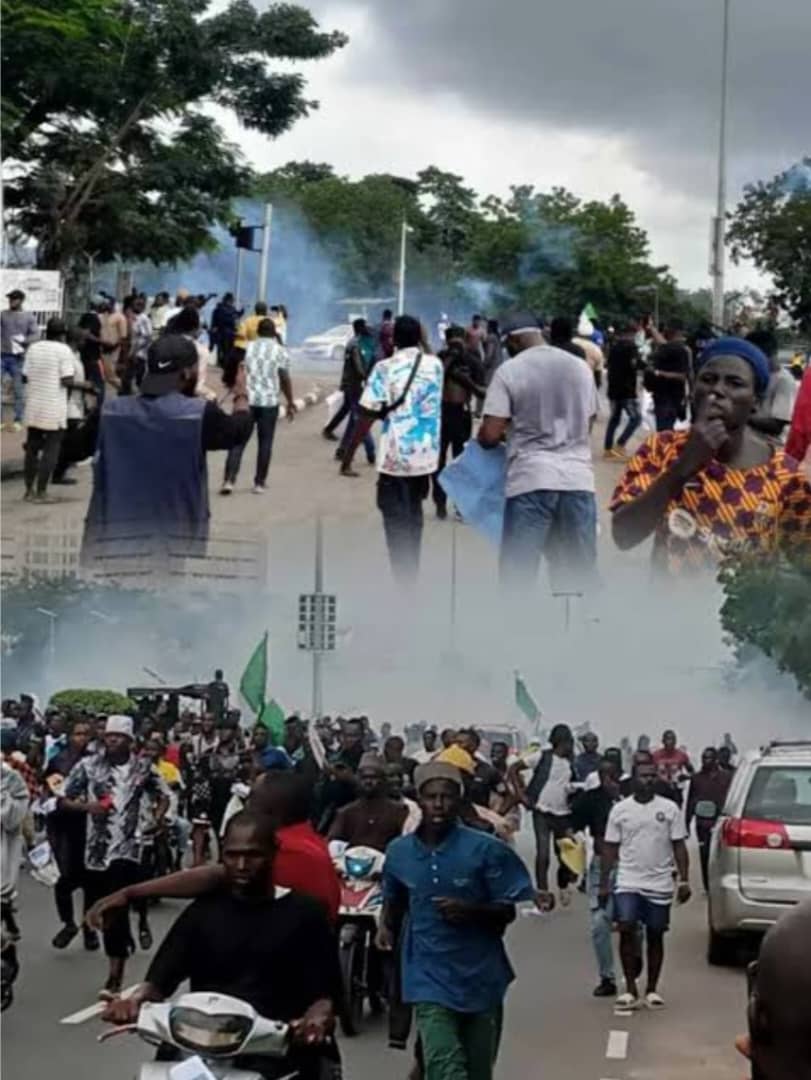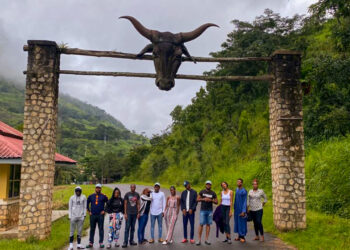Nigerian police on Monday fired tear gas to disperse protesters in Abuja who were demanding the release of Nnamdi Kanu, leader of the proscribed Indigenous People of Biafra (IPOB), who has been in detention since 2021 on terrorism charges.
The demonstrators, led by activist and publisher of Sahara Reporters, Omoyele Sowore, converged in parts of the capital as early as 7:00 a.m. before security forces moved in to break up the gathering.
Eyewitnesses told NATIONAL ECONOMY that police fired several rounds of tear gas and blocked key roads, leading to heavy traffic gridlock and confusion across major parts of the city.
Sowore, in a post on X, said several protesters had been arrested, including members of Kanu’s family and his legal representatives. The police have yet to comment on the alleged arrests.
The protesters are demanding that authorities comply with previous court rulings and free Kanu, who also holds British citizenship.
Kanu, who was re-arrested in 2021 after fleeing the country in 2017, has consistently denied the terrorism allegations against him. IPOB, which he leads, has been pushing for the secession of Nigeria’s South-East region to form an independent Biafran nation.
The group was banned and designated a terrorist organisation by the Nigerian government in 2017. Its armed wing, the Eastern Security Network (ESN), has been accused by authorities of being behind several violent attacks and killings in the region — allegations the group denies.
Kanu’s long-running legal battle has drawn both domestic and international attention. In 2022, an appeal court ordered the charges against him dropped, ruling that his extradition to Nigeria had breached due process. However, the Supreme Court overturned that decision in 2023, paving the way for his ongoing trial.
His legal team is expected to open the defence phase of his case on Thursday after a federal high court dismissed their “no case to answer” submission.
Despite years of incarceration and legal setbacks, Kanu remains a cult figure among his followers, particularly in Nigeria’s South-East, where calls for his release continue to resonate.





